Mastering the Art of Tailored Recruitment for Manufacturing Roles
Manufacturing recruitment often falls short when it treats all roles the same. You know your operations demand more than generic hiring tactics—they require recruitment strategies built around specific skills and challenges unique to manufacturing roles. This post breaks down how tailored recruitment solutions can help you connect with the right talent faster and more reliably, setting your team up for lasting success. For more insights, check out this resource.## Understanding Manufacturing Recruitment

To truly excel in manufacturing recruitment, it’s crucial to grasp the distinct needs of the industry. Let’s explore this further.
Challenges in Manufacturing Hiring
Manufacturing hiring isn’t like filling positions elsewhere. It often demands urgent placements due to project deadlines. Most candidates must possess specific technical skills. For example, a factory may need workers skilled in CNC machining, a requirement not found in other sectors. This specificity makes recruitment challenging.
Another hurdle is the perception of manufacturing roles as outdated or less appealing. This can make attracting young talent tough. The industry needs to shed this image to draw in diverse applicants. Additionally, there’s a competitive nature in hiring skilled workers, as companies vie for the best talent. Understanding these challenges is vital to crafting effective recruitment strategies.
Importance of Industry-Specific Recruitment
Understanding the unique nature of manufacturing roles highlights the need for industry-specific recruitment. Tailored approaches can identify the exact skills and experience needed. For instance, hiring for a robotics technician requires different skills than hiring for a quality control manager. Each role has its unique demands and intricacies.
Industry-specific recruitment brings efficiency by focusing on the right candidates. It saves time and resources, ensuring that only suitable applicants are considered. A targeted approach also enhances the candidate experience, reducing the time from application to hiring. Such specialization not only attracts the right talent but also promotes retention, as employees feel their skills are well-matched to their roles.
Tailored Recruitment Strategies

Having established the importance of specialized approaches, let’s delve into strategies that can enhance recruitment effectiveness in manufacturing.
Focusing on Skill-Specific Needs
Pinpointing skill-specific needs is the heart of manufacturing recruitment. Understanding what makes a candidate a good fit is crucial. For example, you might need someone with both welding skills and team leadership experience. Such combinations are vital in many roles.
To achieve this, start by clearly defining the skills needed for each position. Create a detailed job description that highlights these specifics. This clarity helps filter out unsuitable candidates early. Moreover, engaging with technical schools and colleges can create a pipeline of skilled workers. By focusing on these specific needs, you streamline the process, ensuring only the most qualified candidates are considered.
Addressing Unique Role Challenges
Each manufacturing role comes with its own set of challenges. Understanding these is key to effective recruitment. For instance, roles in high-tech manufacturing may involve rapidly changing technology. Candidates need to be adaptable and eager to learn.
To address these challenges, consider developing role-specific training programs. This can help new hires get up to speed quickly. Moreover, offering mentorship opportunities can ease the transition for new employees. By addressing role-specific challenges, you create a supportive environment that fosters growth and retention.
Leveraging Technology in Recruitment
Technology plays a pivotal role in modern recruitment. It can enhance efficiency and reach. Applicant tracking systems (ATS) streamline the hiring process, making it easier to find the right fit. These systems can filter applications based on specific criteria, saving valuable time.
Additionally, virtual reality can simulate job roles during the interview process. This allows candidates to experience the role firsthand. It also helps employers assess skills in a practical setting. Embracing technology not only speeds up the recruitment process but also improves the quality of hires. Check out modern recruitment trends for more insights.
Successful Talent Acquisition

Effective recruitment strategies lead to successful talent acquisition, ensuring you find the right fit for each manufacturing role.
Matching Talent with Manufacturing Roles
Matching talent with the right roles is crucial. This begins with understanding the specific requirements of each position. For example, a production supervisor needs leadership skills and a deep understanding of manufacturing processes. Identifying these essentials helps in screening candidates effectively.
Collaborating with recruitment agencies that specialize in manufacturing can also enhance this process. They have access to a larger pool of candidates and understand the nuances of the industry. With their expertise, you can ensure that the talent you acquire aligns perfectly with your job requirements.
Case Studies of Tailored Recruitment Solutions
Consider a company that needed to fill multiple roles quickly. They partnered with a specialized recruitment agency that understood the intricacies of manufacturing. Together, they developed a targeted recruitment plan focused on specific skills. This approach drastically reduced the time-to-hire and improved candidate quality.
Such success stories reinforce the value of tailored recruitment solutions. They demonstrate how industry-specific strategies can lead to better outcomes. By customizing your recruitment approach, you enhance the chances of finding the perfect fit for each role.
Partnering with Recruitment Experts
Partnering with recruitment experts can transform your hiring process. These experts bring a wealth of experience and insight. They understand the unique challenges of manufacturing recruitment and offer tailored solutions.
When you partner with experts, you gain access to a broader network of candidates. They also provide valuable market insights, helping you stay competitive. A strategic partnership ensures your recruitment process is efficient and effective. This collaboration leads to successful talent acquisition, setting your team up for lasting success. For further reading, explore how manufacturers can hire smarter.
In conclusion, tailored recruitment strategies in manufacturing are not just beneficial; they are essential. By understanding the unique needs of each role and leveraging industry-specific approaches, you can attract and retain the right talent. As the industry evolves, staying ahead in recruitment practices will ensure your company remains competitive and successful.


